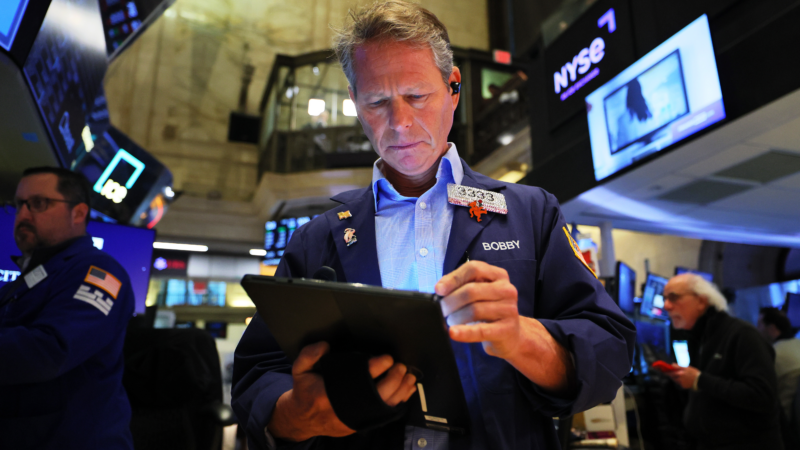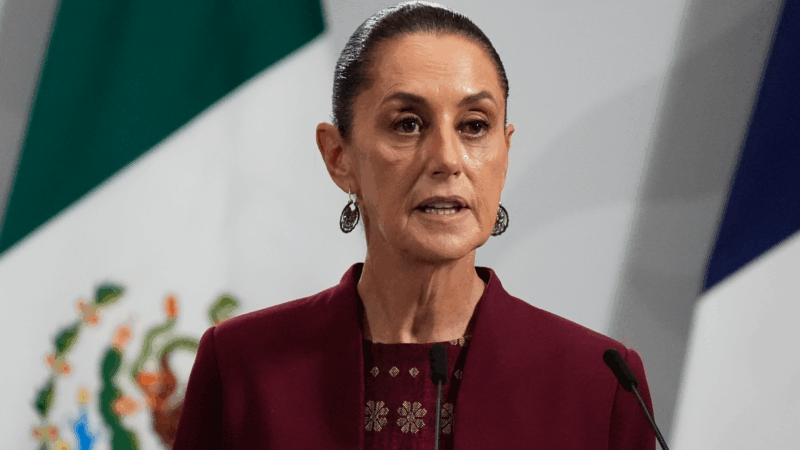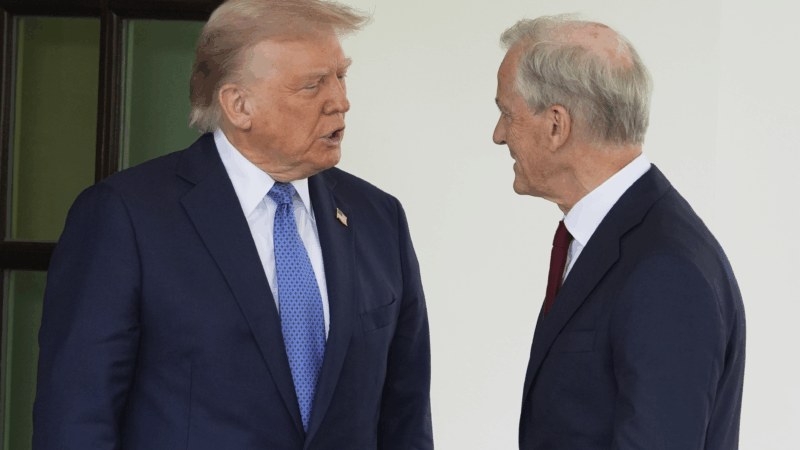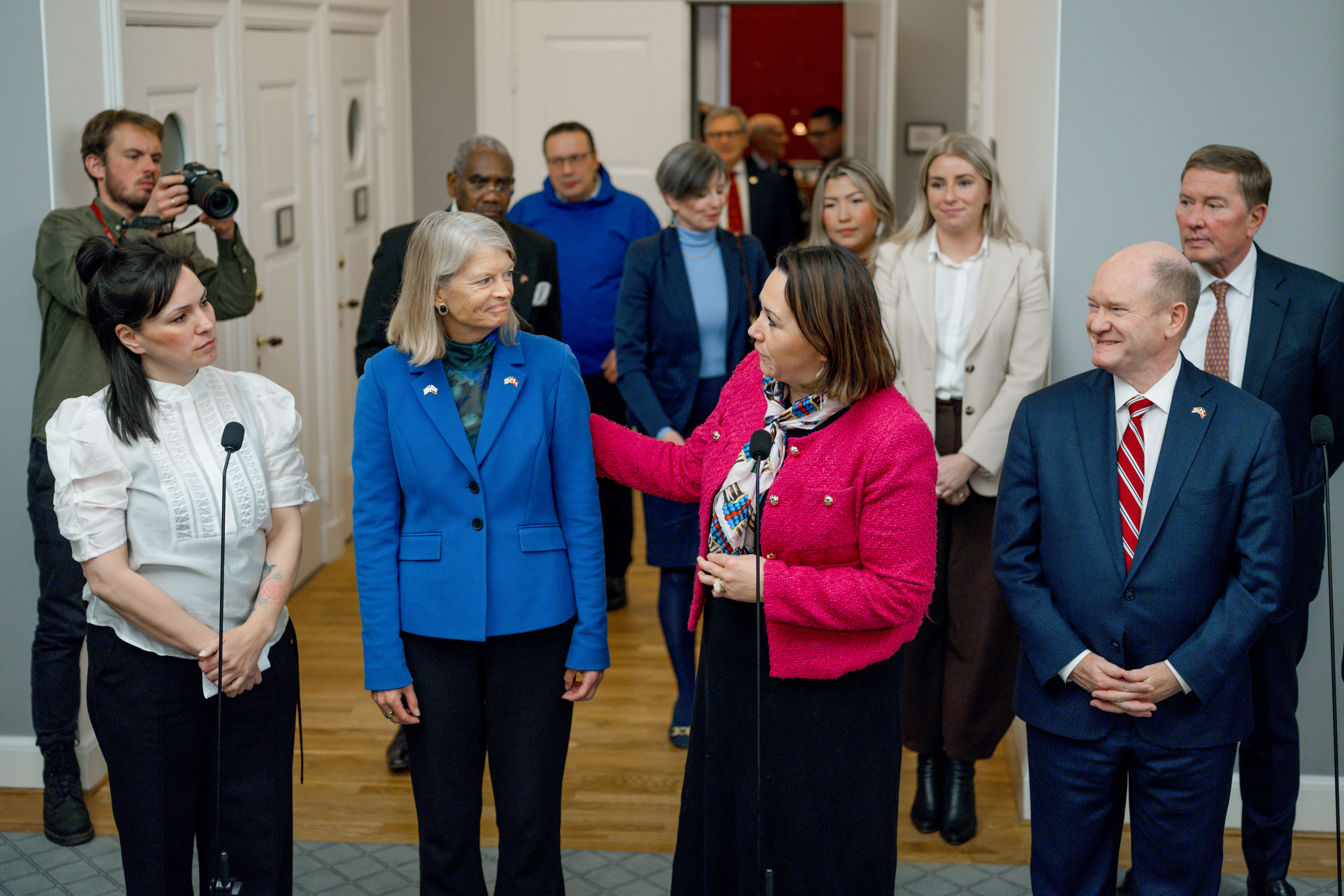U.S. stock markets bounce back after Trump tariffs shock — but nerves abound
U.S. stock markets bounced back on Tuesday after several days of sustained sell-offs that saw equity markets crater since President Trump’s announcement of global trading tariffs.
The recovery in Wall Street comes after shares in Europe and Asia rebounded earlier following a tumultuous day on global markets on Monday. The Dow Jones Industrial average was up over 1,200 points, or more than 3% in early trading on Tuesday after three sessions of steep falls. The S&P 500 and the Nasdaq were also up more than 3%.
But after the major slides and significant volatility in equity trading last week and into Monday — from Shanghai to New York, Frankfurt to Tokyo — any slight uptick in stock prices on Tuesday will only repair part of the value destruction that saw trillions of dollars in investor wealth wiped out over the past few days.
Despite the rebound, uncertainty remains
The major stock markets in Hong Kong and Shanghai — the Hang Seng Index and Shanghai Composite, respectively — closed slightly higher on Tuesday, while Tokyo’s Nikkei ended the day’s trading in Japan up more than 6%. It hit its lowest level in 18 months on Monday, with its listed stocks having lost almost a fifth of value over the past two weeks.
European markets were also posting gains on Tuesday, but investors in the continent’s major stock markets have also suffered significant losses in the past week, and that’s even before exporters have really begun to feel the effects of significant tariffs on European products sold to the United States.
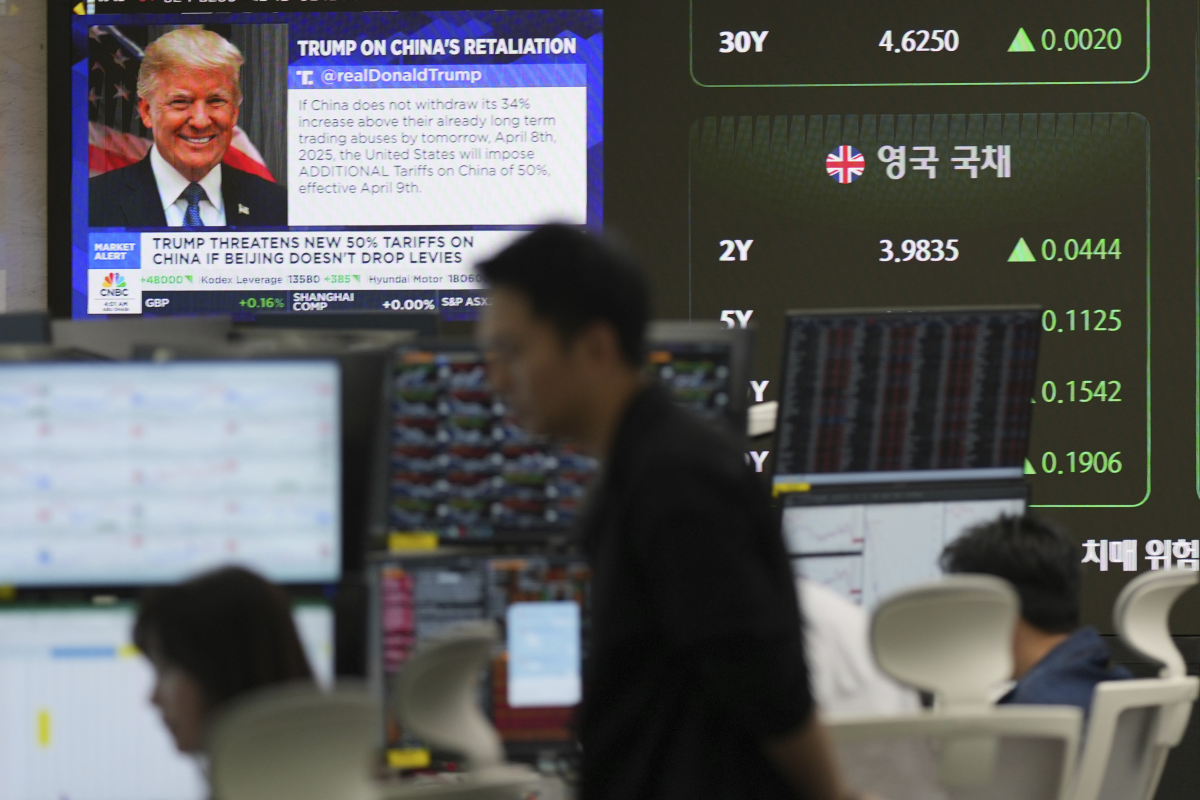
As investors seek out assets that can serve as a bulwark against uncertainty in other markets, the price of gold has continued to soar to above $3,000 an ounce, prompting financial analysts to liken the current geopolitical and economic uncertainty to that of the late 1970s and 1980s, when gold prices also spiked significantly.
And in light of the uncertainty over the United States’ future role on the world stage, analysts say another asset usually considered a safe haven for investors — the dollar — may also continue to weaken against other global currencies.
Countries continue reacting to Trump’s tariffs
In China, a number of large, government-backed businesses and listed companies have announced they will buy back their own shares, as part of a wider effort to calm the local equity markets.
Officials in China said Tuesday that they wouldn’t back down in the face of Trump’s threats to impose a further 50% tariff on Chinese exports to the U.S., saying “China will fight till the end if the U.S. side is bent on going down the wrong path.”
But other countries have expressed willingness to negotiate. President Trump said on social media on Tuesday that South Korea was sending a team to the U.S. to try to negotiate a deal after the U.S also imposed tariffs last week on the Asian country.
Top U.S. archbishops denounce American foreign policy
The three most-senior cardinals leading U.S. archdioceses issued the rebuke in a joint statement on Monday, saying recent policies have thrown America's "morale role in confronting evil" into question.
Italian fashion designer Valentino dies at 93
Garavani built one of the most recognizable luxury brands in the world. His clients included royalty, Hollywood stars, and first ladies.
Sheinbaum reassures Mexico after US military movements spark concern
Mexican President Claudia Sheinbaum quelled concerns on Monday about two recent movements of the U.S. military in the vicinity of Mexico that have the country on edge since the attack on Venezuela.
Trump says he’s pursuing Greenland after perceived Nobel Peace Prize snub
"Considering your Country decided not to give me the Nobel Peace Prize… I no longer feel an obligation to think purely of Peace," Trump wrote in a message to the Norwegian Prime Minister.
U.S. lawmakers wrap reassurance tour in Denmark as tensions around Greenland grow
A bipartisan congressional delegation traveled to Denmark to try to deescalate rising tensions. Just as they were finishing, President Trump announced new tariffs on the country until it agrees to his plan of acquiring Greenland.
Can exercise and anti-inflammatories fend off aging? A study aims to find out
New research is underway to test whether a combination of high-intensity interval training and generic medicines can slow down aging and fend off age-related diseases. Here's how it might work.

